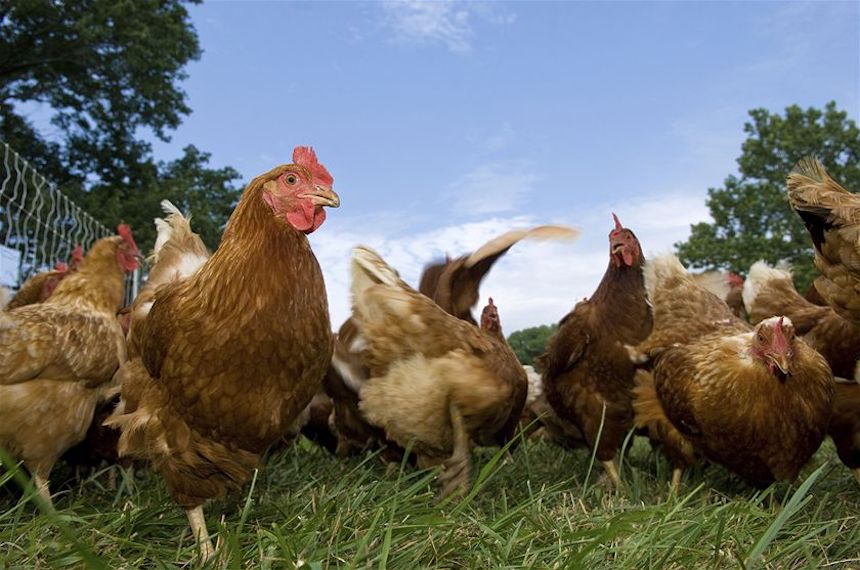
While devastating, the recent pandemic allowed many to rediscover life’s simple pleasures. With the social distancing and multiple lockdowns of 2020, more time was spent at home than ever before. This shift prompted numerous individuals to pour their energy and resources into transforming their backyards into vibrant outdoor havens. Amid these changes, one trend truly took flight. While we’ve all heard of the pandemic puppies, it’s the rise of backyard chickens that seems to have firmly rooted itself in our post-pandemic lifestyles. For many budding poultry enthusiasts, their journey began with investing in a reliable egg incubator kit, setting the stage for a flock of their own.
It’s worth noting that the concept of raising poultry in one’s backyard isn’t a novel idea. A 2013 USDA study had already predicted that by 2019, 13 million people, or 5% of Americans, would be rearing chickens at home. In this article, we’ll delve deep into the burgeoning popularity of backyard chicken raising, assessing both its merits and challenges.
Why Backyard Chickens Are All the Rage
Urban chicken-keeping has become de rigueur, with cities across the U.S. witnessing a steady upsurge—so much so that one study found a whopping 93% of the 150 most populated U.S. cities allow people to raise backyard chickens in some capacity.
Peeling back the layers of this trend, it’s evident that sustainability is a key driving force. The allure of cultivating a small flock of fresh eggs resonates deeply with our yearning for locally sourced, organic produce. Moreover, the self-sufficiency that comes with raising hens provides a direct link to a nutritious and sustainable food source.
In the grand tapestry of sustainable living, the backyard chicken trend finds its place alongside other conscientious movements. Just as “green” gardening techniques embrace environmental harmony, the integration of chickens into our gardens embodies a holistic approach. The natural fertilization they provide improves soil health, fostering a thriving ecosystem for plants to grow in.
Benefits of Backyard Chickens for Gardens
There’s plenty of proof pointing to backyard chickens as bona fide garden allies. Let’s delve into how these clucking wonders elevate your garden game.
Sustainable Food Source
Backyard chickens make cute and practical pets, but they also offer excellent sources of food via eggs and even poultry meat. The construction of a well-planned coop will allow these functional fowl to breed and rest comfortably. Spaces for nests enable hens to lay eggs continuously and consistently. Plus, the use of dedicated poultry supplies ensures that selected eggs can hatch into healthy chicks that you can grow or sell.
Natural Fertilizer Production
Picture this: nutrient-rich chicken manure that transforms your garden soil into a haven for thriving plants. Chicken droppings, a powerhouse of essential nutrients, serve as the ideal natural fertilizer. Rich in nitrogen, phosphorus, and potassium, chicken manure enhances soil fertility and stimulates plant growth.
Pest Control and Weed Management
Since chickens are diligent foragers, they exhibit an uncanny knack for pest control and weed management. They eagerly scratch and peck around, feasting on insects that dare cross their path. From voracious bugs to bothersome weeds, your garden’s unwanted guests are food for these fowl. These vigilant guardians reduce the need for chemical interventions, creating a harmonious and pesticide-free garden ecosystem.
Soil Aeration and Tilling
Observe their rhythmic scratching and digging, and you’re witnessing nature’s tilling experts in action. Chickens aerate and till the soil, as they scratch for treats. This behavior not only enhances soil structure but also improves drainage.
Backyard chickens are more than just endearing companions—they’re sustainable food sources, natural fertilizer producers, and unmatched pest controllers. By welcoming these feathered allies into your garden, you’re ensuring a flourishing ecosystem and championing an eco-friendly and holistic approach to raising poultry and gardening.
Potential Drawbacks of Backyard Chickens for Gardens
While these clucking companions can bring rustic charm and organic produce, there are a few caveats of raising them in your backyard.
Soil Compaction and Overgrazing
Domesticated poultry possesses an instinctual zeal for scratching and pecking, which, regrettably, can lead to soil compaction. To counter this, you can employ strategies like rotating their foraging zones and employing mobile coops, thus nurturing the soil’s vitality.
Seedling and Plant Vulnerability
Chickens’ inquisitive pecking behavior, akin to scavenging treasure hunters, can inadvertently spell doom for tender seedlings and burgeoning plants. But there is a simple solution. Install barriers, such as protective wire mesh cloches to effectively shield your seedlings from these feathered explorers.
Germs and Health Concerns
Keeping both chickens and humans healthy requires careful attention. Diseases can be passed from bird to person, which can be a tricky situation. Keep the chicken living area tidy and regularly checki for health issues to maintain a safe space where raising poultry and gardening work well together.
Sustainable Living and Backyard Chickens
We’ve discussed how backyard chickens positively impact your food supply and garden. Now, let’s explore just how raising poultry can pave the path for sustainable living.
Reduced Carbon Footprint
Local egg production is a cornerstone of sustainable living. By welcoming backyard chickens to your garden, you’re embracing an eco-friendly choice that significantly trims your carbon footprint. Unlike commercial egg production which often involves long transportation routes and resource-intensive practices, your clucking companions supply you with fresh, locally produced eggs. This means fewer greenhouse gas emissions and decreased energy consumption.
Educational Opportunities
Beyond the verdant landscape, backyard chickens offer educational treasures. They’re the perfect route to cultivate awareness about food origins. Your children, family, and friends witness firsthand the beauty of nurturing hens and collecting eggs. This fosters an appreciation for nature’s cycles and the farm-to-table journey.
Moreover, these charming birds provide a living classroom. Children eagerly learn about animal care, responsibility, and the symbiotic relationship between humans and nature. It’s a hands-on experience that imparts lifelong values.
Considerations and Best Practices for Keeping Backyard Chickens
Raising backyard chickens has gained traction among urban dwellers and hobbyists alike. Before diving into this rewarding endeavor, there are key considerations and practices to bear in mind to ensure the health and happiness of your flock.
Understanding Local Ordinances
When starting your own poultry journey, know your local ordinances. Research and compliance with regulations help create a hassle-free experience. Once you’ve obtained the required permits, you can confidently proceed, knowing you’re adhering to guidelines and setting the stage for your chickens to thrive.
Choosing the Right Breeds
Consider chicken breeds for smaller spaces and prioritize those adaptable to your area’s climate. Notably, breeds known for their strong egg-laying capabilities can be dual-purpose, serving both as coop members and as a food source. Familiarize yourself with the temperament and adaptability of each breed and create a balanced and harmonious environment where every breed can thrive.
Designing and Maintaining the Coop
The coop is central to your poultry setup, playing a crucial role in the health and safety of your chickens. Creating a well-designed habitat is essential to ensure the well-being of your hens. Regular upkeep and cleaning supports poultry health and contribute to a productive and thriving environment.
Keeping backyard chickens is not just about providing them space; it’s also about understanding regulations, selecting the right breeds, and ensuring their living conditions are optimal.
Are You Ready to Cluck In?
The jury is still out on how long the suburban backyard chicken trend lasts. But one thing’s for sure—raising poultry with your vegetation comes with a host of benefits. With patience and planning, you can have a source of food, natural fertilizer, and potentially hours of entertainment right at home. Are you ready to dive into the task of raising backyard chickens? Let us know in the comments below!






